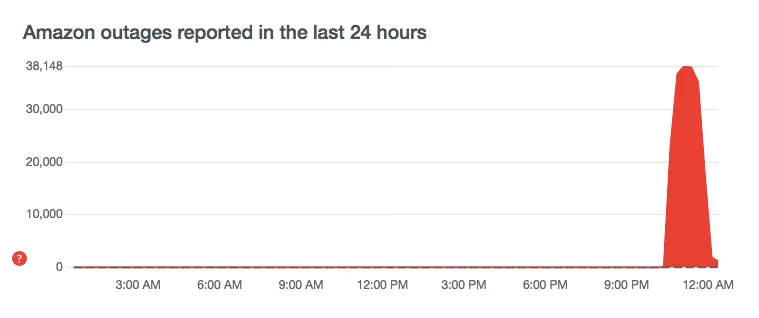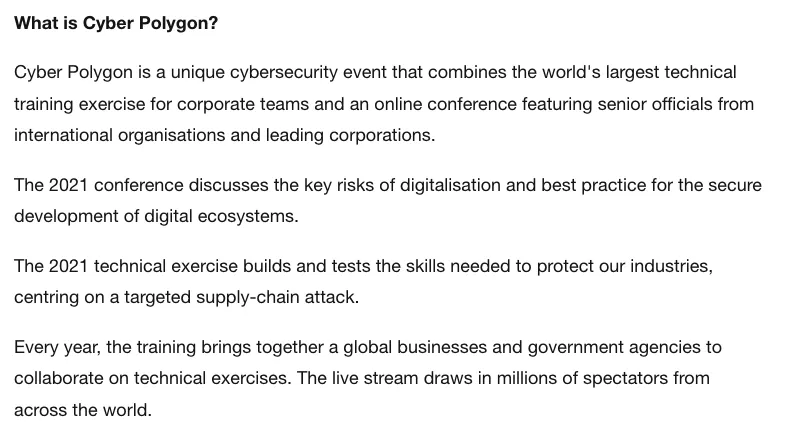It appears the Amazon website is currently down globally for many users.

DownDetector.com received over 35,000 reports of outages between the hours of 10:30 p.m. and 12:00 a.m. EST. Of those, 78% are problems with the website, and the rest are problems with checkout or login.
When I visit the site, everything appears as normal until I click to view an item. Then I get an error message.
As of the writing of this post, Amazon has not made any statements about the cause of the outage, or given any estimates for how long it will take to bring the site back to working order.
The outage comes on the heels of Cyber Polygon, a virtual conference put on by the World Economic Forum, purportedly seeking to address global cybersecurity threats in the new age of digitalization.

A Cyber Threat with "Covid-Like Characteristics"
Researchers opposed to the "Great Reset" have referred to Cyber Polygon as a sort of "war game"--a practice run in advance of real-world false flag attacks. The WEF doesn't do much to assuage these fears by using Covid lexicon as branding for the sort of cybersecurity threats it envisions plaguing us in the very near future.
Klaus Shwab has warned of a "cyber pandemic" that will bring global economies and governments to their knees. Cybersecurity threats of the future, we are told, will not target individuals' finances, but society-wide infrastructure.
Hmmm. Society-wide infrastructure...such as Amazon?
The future is now?
That the Amazon outage occurred just two days after the Cyber Polygon event may be just a coincidence. But it certainly is something to think about.
If indeed the Amazon outage is due to a cyber-attack, it would not be the first major infrastructure-targeting hack we've seen in recent months. So far in 2021, cyber-attacks have taken down operations of a major US oil pipeline, as well as the world's largest meat supplier, and others.
The huge uptick in what some have called "cyberterrorism" events is certainly a cause for concern. It's also mighty suspicious. Why so many attacks? Why so closely timed? Why the laser focus on crucial global infrastructure, like food and fuel? And why the massive publicity campaign to alert us to these threats, conveniently right before they happen?
What to do about cyberplagues?
The WEF has a ready-made program of solutions for this cyberpandemic, just like it had for the Covid-19 pandemic. In the face of these threats, it would have us cede even more of our individual autonomy over to the governments and a worldwide, extra-governmental surveillance panopticon. Somehow the answer to cyberterrorism is to even more fully digitize our lives, and to hand the keys over to the state.
But just as we skeptics have resisted the masks, the social distancing, the vaccines, and the medical passports floated as solutions for Covid, so must we resist the digital IDs and cyberspace prisons the WEF wants to herd us into now. That's not the answer.
The real answer is decentralization. Increasing our personal, family, and community-level independence, and making sure that when one system fails we have several more to fall back on.
Will there be more widespread infrastructure failure? It's looking likely. Don't be caught off guard. Reduce your dependence on infrastructure giants like Amazon, and encourage your neighbors to do the same.

Thanks for reading!
Hi, I'm Starr. I write about dystopias, both fictional and non-fictional. The first four chapters of my dystopian science fiction novel, Technate 2051, are up now on Hive. The novel imagines what life might look like in thirty years if the Great Reset succeeds.
Check out Chapter One.
